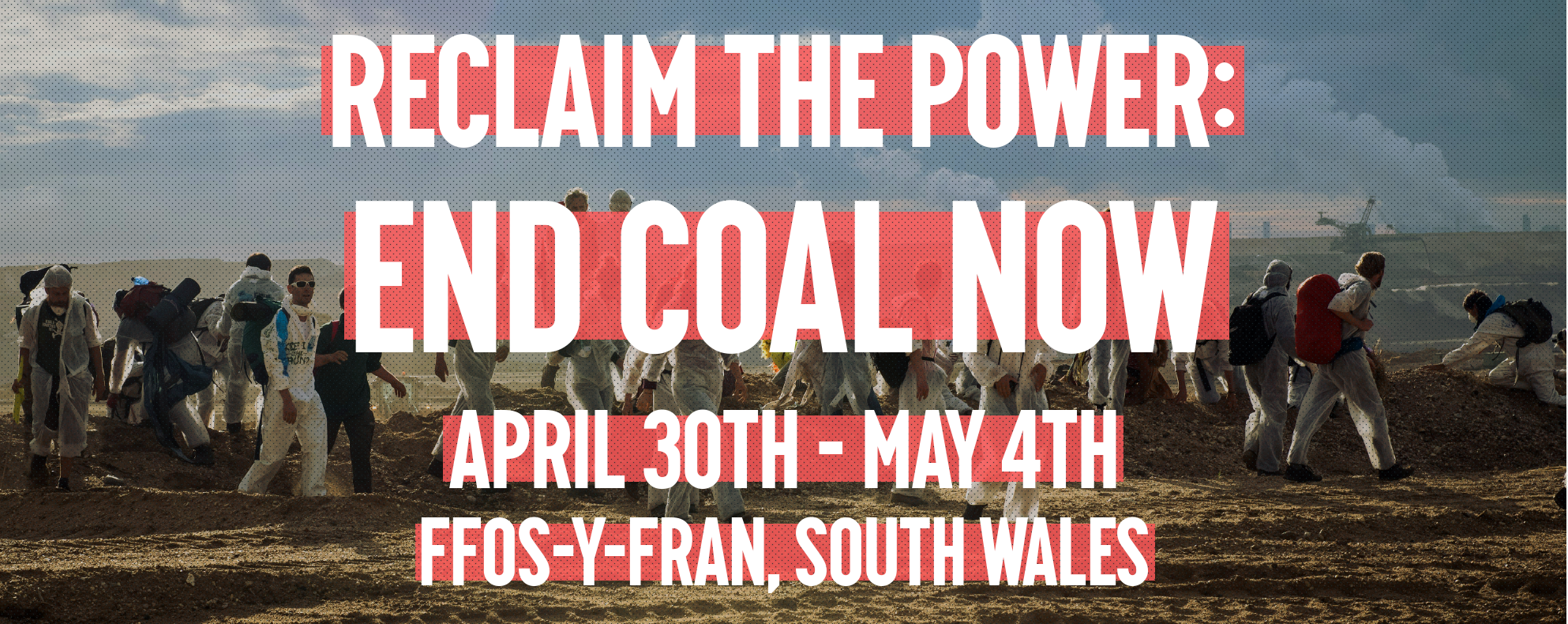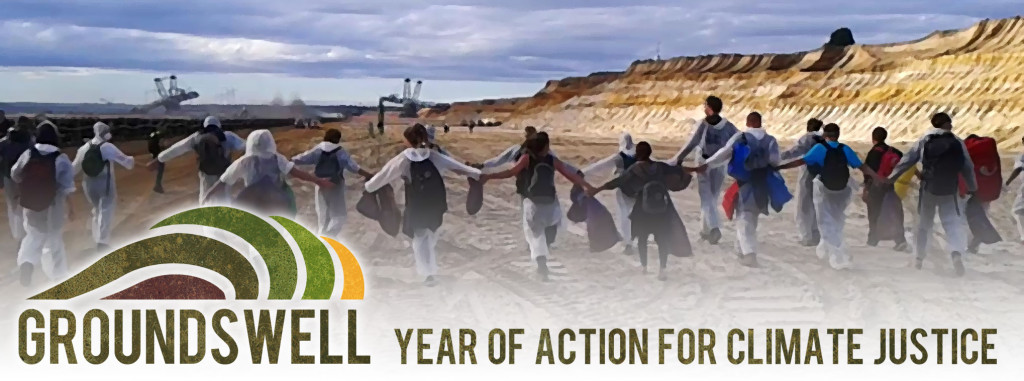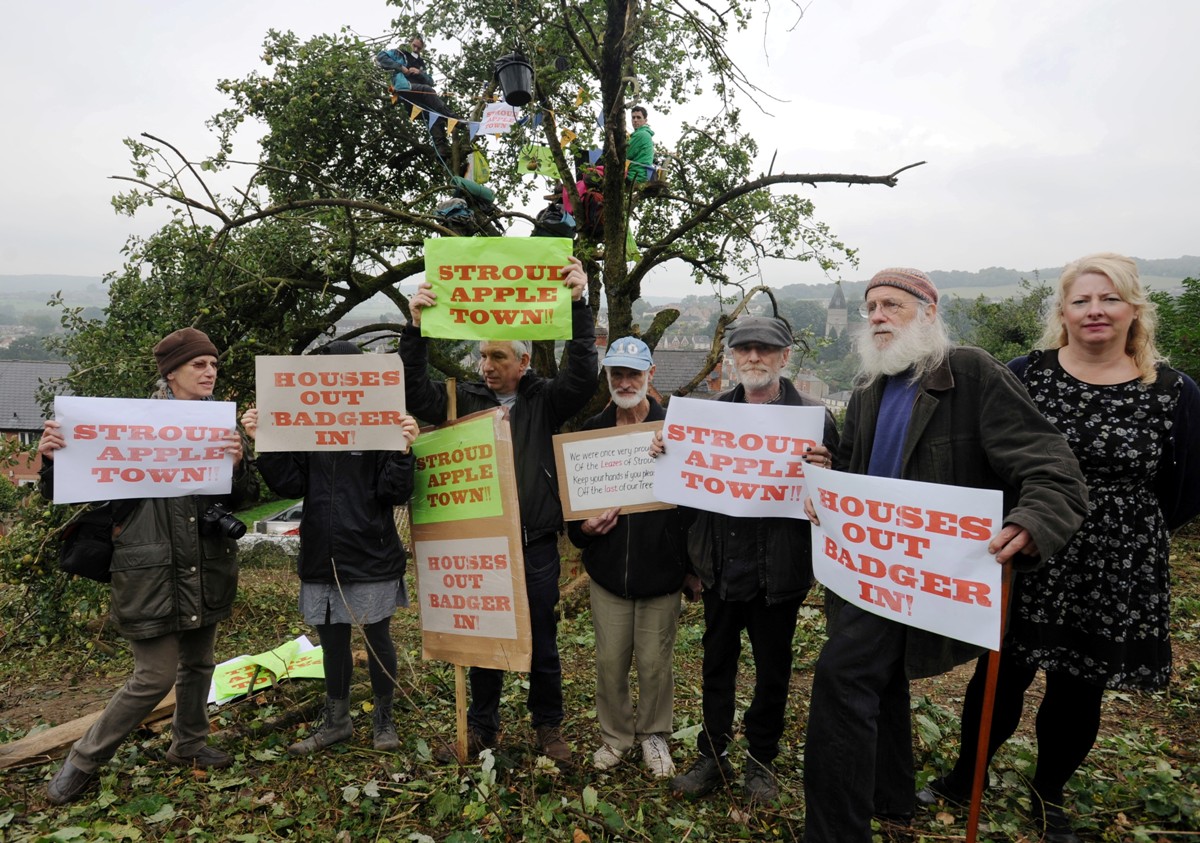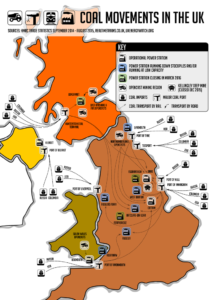
As part of the Groundswell year of action and international mobilisations taking on the fossil fuel industry, this May, we’re going to shut down the UK’s largest opencast coal mine – Ffos-y-fran in Wales. It’s up to us to keep it in the ground – sign up to join us and get updates on plans.
What’s the Plan?
In collaboration with local resistance groups, we’ll set up camp near Ffos-y-fran and the site of the proposed new mine. We’ll build a camp and use this as a base to host a programme of workshops and trainings, and to build the kind of community we want to see – just, democratic and sustainable. We will also be taking mass action to shut down Ffos-y-fran. The camp will take place over the May bank holiday weekend, from Saturday 30th April to Wednesday 4th May and will come just before the Welsh Assembly elections on May 5th. Further information on the practicalities of the camp is coming soon. Sign up to the mailing list for updates.
Why?
For nearly a decade, the 11-million-tonne Ffos-y-fran mine has scarred the landscape and the community in South Wales. Now the corporation responsible for Ffos-y-fran – Miller Argent – wants to crush local democracy and resistance, and dig another vast coal mine just next door at Nant Llesg. Coal is the dirtiest fossil fuel and we cannot transition to a just, democratic and clean energy system while we continue to dig it up and burn it. We want to build on the strong tradition of mass action Climate Camps in the UK, and the success of the Reclaim the Power camps over the last few years. We have also been inspired by Ende Gelände and other international coal resistance movements. Last year, the Welsh Assembly voted for a moratorium on opencast coal mining, but the Government have ignored them. Let’s make leaving fossil fuels in the ground a defining political issue in Wales and the UK.




